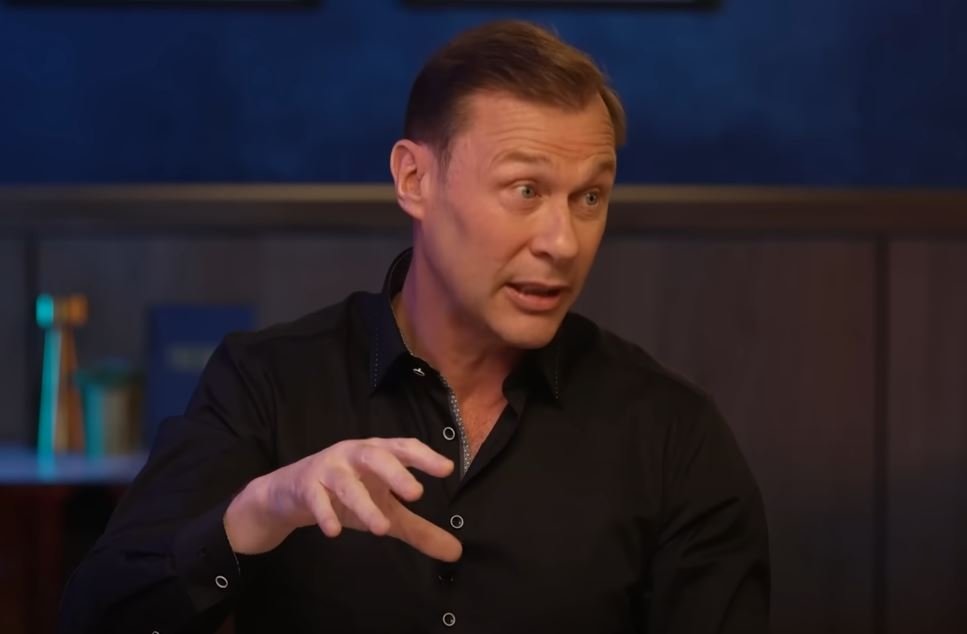
Few players in British football over the last thirty years have exemplified emotional sensitivity and unadulterated grit like Duncan Ferguson. His career has taken a dramatic turn after being propelled by high-profile transfer fees and boisterous Goodison Park support. Ferguson reportedly made £30,000 a week at the height of his wealth, a salary commensurate with his position as a dominant striker. However, the former Everton star was declared bankrupt in 2016, signifying a harsh reality that still haunts players who have retired.
Ferguson faced a £4 million tax bill shortly after HMRC filed for bankruptcy against him in January 2016. There was more to the story than unpaid taxes. It had to do with unbridled giving, foolish investments, and the psychological toll of losing everything. Ferguson said that the night he attempted to take off his wife Janine’s engagement ring—not out of sentimentality, but to pawn it—was one of his darkest moments. Once a symbol of their union, the ring now stood for desperation. He later acknowledged that the incident hurt him more than his notorious prison sentence for an assault on the field.
Duncan Ferguson – Bio and Career Table
| Attribute | Details |
|---|---|
| Full Name | Duncan Cowan Ferguson |
| Birthdate | December 27, 1971 |
| Birthplace | Stirling, Scotland |
| Nationality | Scottish |
| Height | 6 ft 4 in (1.93 m) |
| Playing Position | Striker |
| Clubs Played For | Dundee United, Rangers, Everton, Newcastle United |
| Playing Career | 1990–2006 |
| International Caps | 7 for Scotland |
| Notable Titles | FA Cup Winner (Everton, 1995) |
| Managerial Roles | Everton (caretaker), Forest Green Rovers, Inverness Caledonian Thistle |
| Estimated Net Worth | $1 million to $5 million |
| Family | Married to Janine Ferguson; children: Cameron, Ross, Evie |
Ferguson was more than just a goal scorer in his heyday; he was a cultural icon. His on-field persona, known by the nicknames “Big Dunc” and “Duncan Disorderly,” was both feared and admired. He still holds the record for the most red cards in Premier League history with nine. Off the field, however, he displayed an incredibly giving nature. “I’m a giving person,” he remembered. “When I was making a lot of money at Everton and Newcastle, I gave a lot away.” In retrospect, that generosity and a lack of financial knowledge became a significant burden.
Notably, Ferguson’s situation is similar to that of other well-known athletes. Hundreds of people were caught in dangerous tax avoidance schemes involving film investments, including Craig Bellamy, Wes Brown, and even David Beckham. Ferguson acknowledged that he had made significant investments in land and unfulfilled projects. He spent more than £1 million on one such project, which included £500,000 for consulting fees and unused drawings. He once paid £20,000 to a close friend for a Rolex, which he proudly wore for twenty years. He took it to a pawn shop when he was in a tight spot, only to be informed that it was a fake worth only a few hundred dollars.
Ferguson didn’t back down, though. He returned to football instead of fading into resentment, first as a volunteer coach at Everton and then as an assistant manager under Rafa Benitez and Carlo Ancelotti. He agreed to take on his first managerial position at Forest Green Rovers in January 2023. Ferguson stayed dedicated even after the team struggled and was eventually relegated. He later relocated to Inverness Caledonian Thistle, where he worked unpaid while the team struggled financially. That choice—forgoing a salary and even paying for the players’ gas—showed a man attempting to rebuild through service.
The lessons are very personal to Ferguson. Moments of emotional strain were documented in his autobiography, including nights spent looking for coins behind sofa cushions, bills concealed from his wife, and assets sold under duress. In the past, he and Janine had £1 million worth of jewelry, apartments in Liverpool, and land in Mallorca. Sold for a fraction of their original value, all gone.
However, his spirit was not defined by his financial setbacks. Ferguson’s candor regarding his bankruptcy and remorse for previous choices has been incredibly successful in drawing attention to players’ vulnerability after retirement. His experience serves as a reminder of how urgently financial education in sports is needed. All too frequently, teams honor their players without preparing them for life off the field. Ferguson’s story may serve as a warning, but it also demonstrates resiliency.
By being open and honest, he illuminates a trend in the industry that is still mostly unknown. Players who grew up in the 1990s and early 2000s, when there were no contemporary support networks, are especially prone to the startlingly frequent shift from hero to hardship. Ferguson has established himself as an incredibly potent reformer because of his readiness to own up to his mistakes and share anecdotes that other athletes might choose to keep quiet.
Duncan Ferguson is still thought to have a modest net worth today, possibly in the range of $1 million to $5 million. However, his worth as a coach, mentor, and representation of individual salvation is increasing. Now, his son Cameron quietly carries on the family tradition by playing professionally. Ferguson’s story is far from over, even though his heyday on the field may be over. He is still a man molded by introspection, giving, and a strong will to improve in addition to authority and punishment.
